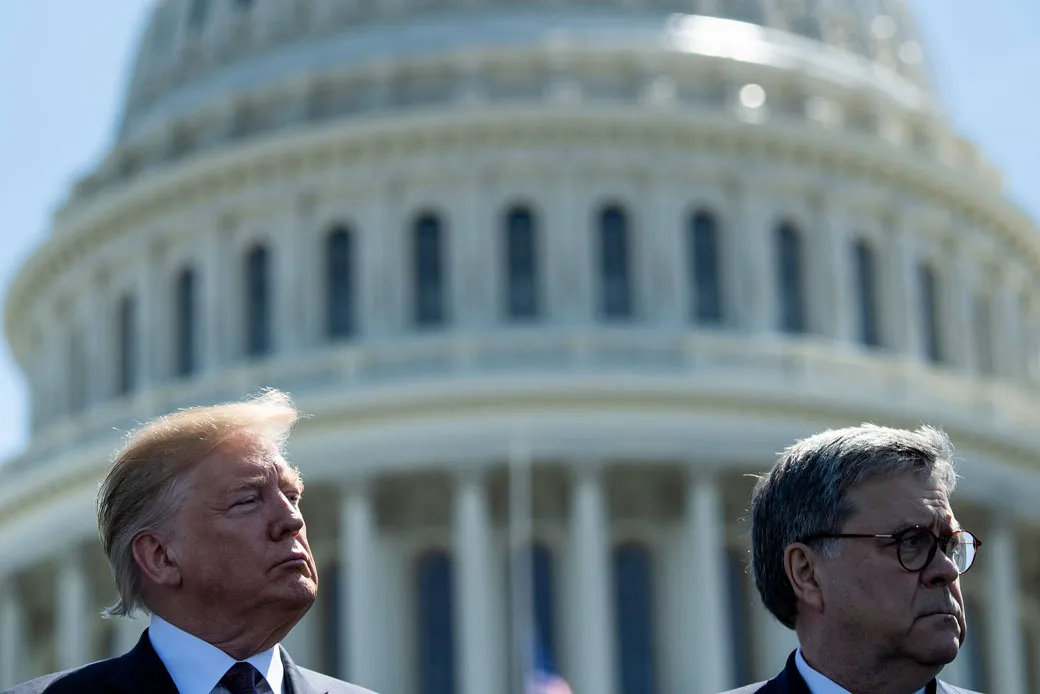Introduction
Allegations that a sitting or former president could influence the Department of Justice (DOJ) to pursue opponents or critics have long sparked intense debate. Proponents of strong DOJ independence argue that the department must operate free from political calculation to uphold the rule of law. Critics, however, point to actions and patterns they view as evidence of political targeting. This article provides a balanced look at the arguments, the mechanisms at play, and the implications for accountability, civil liberties, and public trust.
What the DOJ is supposed to be: independence and limits
- The DOJ is designed to enforce federal law impartially, with safeguards intended to prevent political interference. Key elements include career civil servants, Senate-confirmed leadership, and procedural rules that aim to maintain objectivity.
- Legal scholars often emphasize the importance of independence to preserve due process, avoid selective enforcement, and protect whistleblowers and minority viewpoints.
Common lines of critique: how “targets” are alleged to emerge
- Selective enforcement accusations: Critics argue that investigations or prosecutions appear to favor political allies while sidelining opponents.
- Timing and optics: The perception that prosecutions are timed to influence elections or political outcomes, rather than to pursue legal merit.
- Resource allocation: Debates about whether political considerations influence which cases receive resources, attention, or priority.
- Public messaging: The way officials discuss ongoing investigations can shape public perception, potentially blurring the line between legitimate enforcement and political strategy.
Counterpoints and the other side
- Prosecutorial discretion and complexity: Many cases involve complex financial, national security, or corruption issues where timing and charges are driven by legal standards, not politics.
- Legal constraints: DOJ decisions must adhere to statutes, case law, grand jury requirements, and court oversight, limiting how freely political objectives can steer cases.
- Risk of politicization: Opponents of any aggressive action against opponents may argue that even appearance of bias undermines legitimacy, underscoring the need for transparency and independent oversight.
Notable mechanisms and indicators to watch
- Appointment and leadership: The role of the Attorney General and deputy attorneys general, and whether leadership changes influence investigative priorities.
- Oversight and independence: Inspector General reports, Congress’s oversight actions, and the use of special counsels or independent investigators.
- Case-specific signals: Issuances of subpoenas, indictments, or plea deals related to political figures or close associates, and the rationale publicly provided by prosecutors.
- Communications and public statements: Official press conferences, court filings, and official transcripts that reveal how prosecutors frame legal questions and charges.
Historical context: how past administrations have navigated DOJ autonomy
- Throughout U.S. history, debates about DOJ independence have arisen during periods of intense political rancor. Some episodes prompted reforms, while others reinforced the norm that the department should act on evidence and law, even when politically inconvenient.
- Comparative insights show that independence is often tested during high-stakes political fights, but success hinges on robust institutional safeguards and transparent processes.
Implications for democracy, civil liberties, and public trust
- Public trust: When people perceive the DOJ as politically biased, trust in legal outcomes can erode, potentially undermining the legitimacy of prosecutions and civil rights protections.
- Civil liberties: Ensuring due process, equal protection, and protection against retaliation is crucial, especially for political opponents, activists, and marginalized communities.
- Long-term effects: Sustained concerns about DOJ independence can influence future appointments, legislative push for reforms, or the design of oversight mechanisms.
What observers should monitor going forward?
- Independent investigations: Any establishment of independent or special counsel offices, with clearly defined mandates and timelines.
- Judicial scrutiny: Court decisions that interpret the scope of prosecutorial authority and the proper checks and balances on presidential influence.
- Legislative responses: Proposed reforms aimed at strengthening DOJ independence, transparency, or oversight.
- Media and watchdog reporting: Investigative journalism and civil society analyses that scrutinize procedural fairness, disclosure practices, and potential conflicts of interest.
How can individuals think about this topic?
- Evaluate evidence: Distinguish between allegations, proven facts, and legal conclusions reached by prosecutors and courts.
- Consider sources: Favor primary legal documents (court filings, indictments, official agency statements) and reputable, diverse analyses over unverified rumors.
- Protect civil processes: Support calls for transparency, whistleblower protections, and bipartisan oversight to safeguard the integrity of investigations.
FAQs
- Q: Is there a legal mechanism for a president to directly control DOJ prosecutions?
A: The president has broad authority over the DOJ’s leadership and policy guidance, but prosecutorial decisions are supposed to rest on evidence, statutes, and legal standards, not political directives. Independent oversight and due process protections are key safeguards. - Q: Can political disagreements invalidate a prosecutor’s work?
A: No. Prosecutors must base decisions on law and evidence. Public scrutiny and judicial review help ensure legitimacy even amid political controversy. - Q: What should citizens look for to assess DOJ independence?
A: Consistent application of the law across cases, transparent charging decisions, adherence to ethical norms, independent inquiries when misconduct is suspected, and robust oversight mechanisms.
